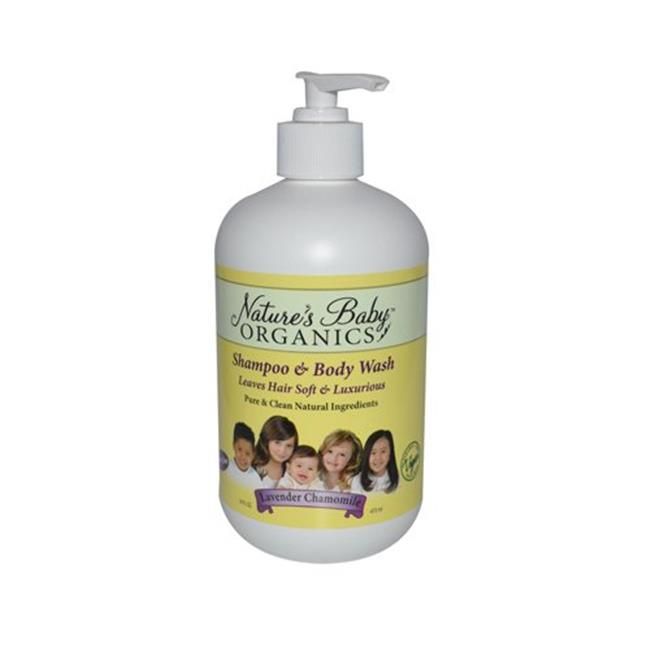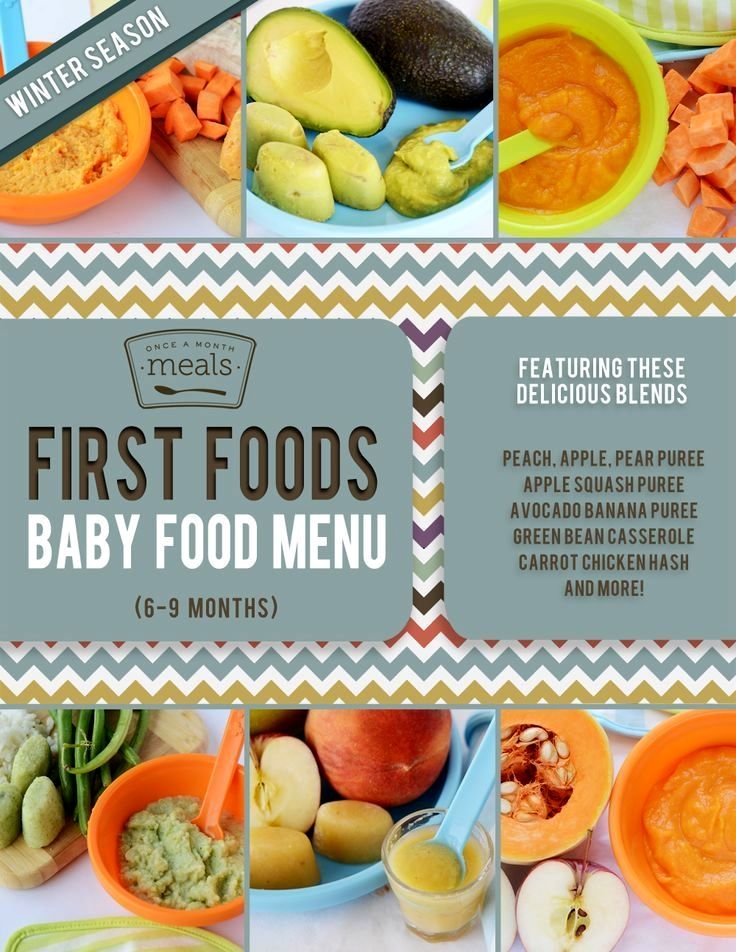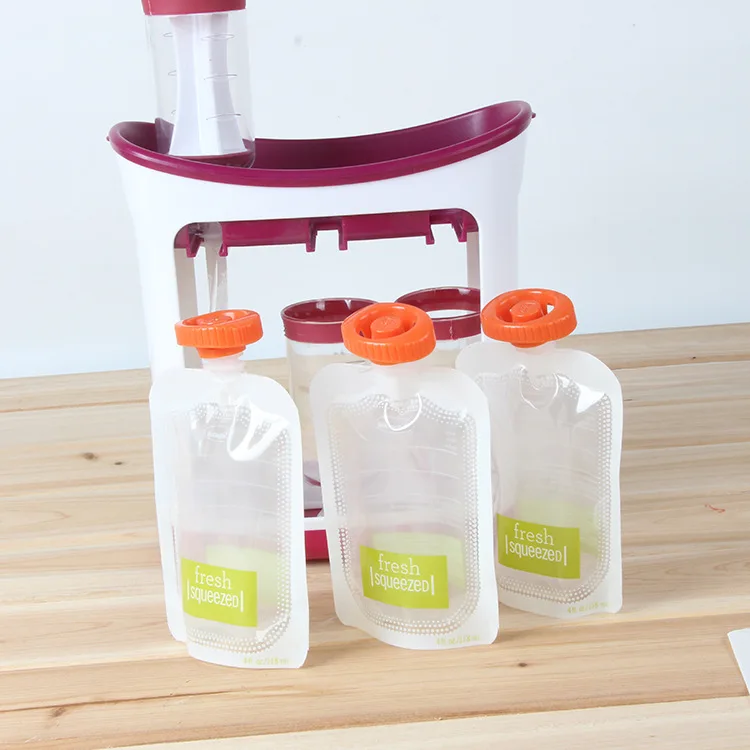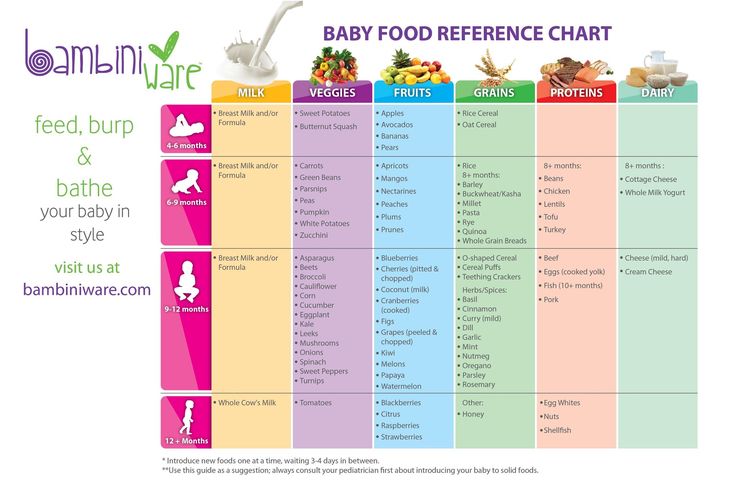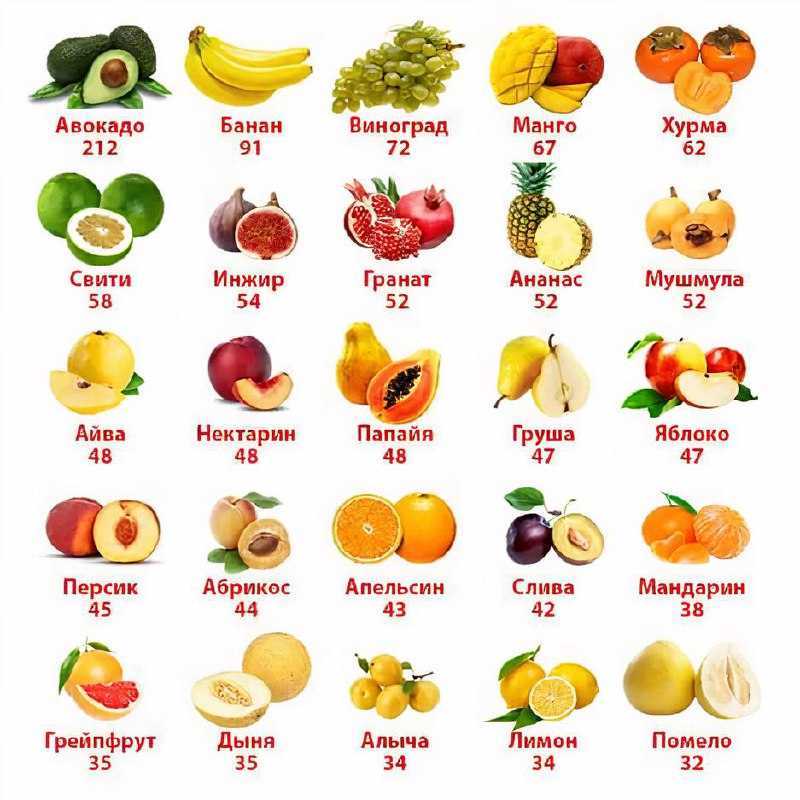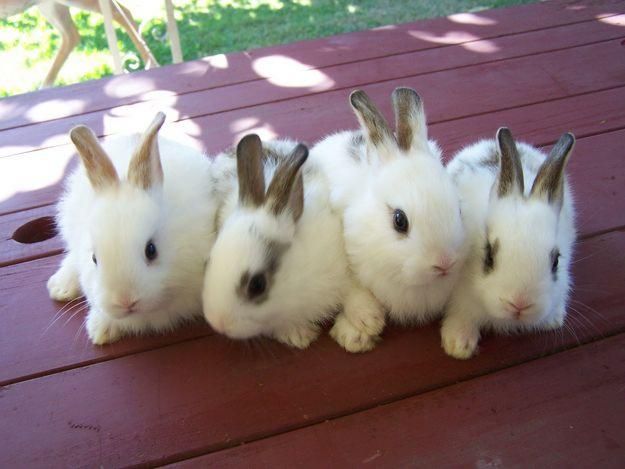Can hamsters eat baby food
Can Hamsters Eat Baby Food?
We love our furry friends, and they love us as well! We should make sure that our hamsters are fed the correct treats and therefore you need to research the snacks to make sure that they are suitable for your hamster. With that in mind, can hamsters eat baby food? Yes! However, you should make sure that it is the correct baby food and that you only feed it correctly. This is what we will be looking at in this article.
We will also be looking at whether hamsters will like baby food, how much they can eat, and other foods that you can feed them. Enjoy!
Table of Contents
What is Baby Food?
Baby food has many definitions, in this case, we will be using the definition that means that it is soft food that is specifically made for babies. This is primarily made so that babies, who don’t have developed teeth, can eat. It contains all of the nutrients that a baby needs, which is one of the reasons why it is suitable as an occasional hamster snack. There are many types of baby food, we will be going into what kinds your hamster can eat next.
Can Hamsters Eat Baby Food?
As stated before, absolutely! Hamsters can, and will, eat baby food. You still need to make sure that you feed it in the correct quantities to your hamster as you may encounter some problems otherwise. You should also ensure that you are feeding the correct baby food to your hamster. Ensure that the baby food is:
- Unsalted – Too much salt is dangerous for your hamster.
- Lacks preservatives – Preservatives can cause health issues for your pet.
- Contains little sugar – Sugar can cause problems for your furry friend.
- Vegetarian – Baby foods with meat can cause problems for your hamster.
If you follow your guidelines, it should be alright to give your hamster a small amount of baby food.
Will Hamsters Like Baby Food?
We think that they will! Baby food contains lots of delicious nutrients and vegetables that your furry friend should love.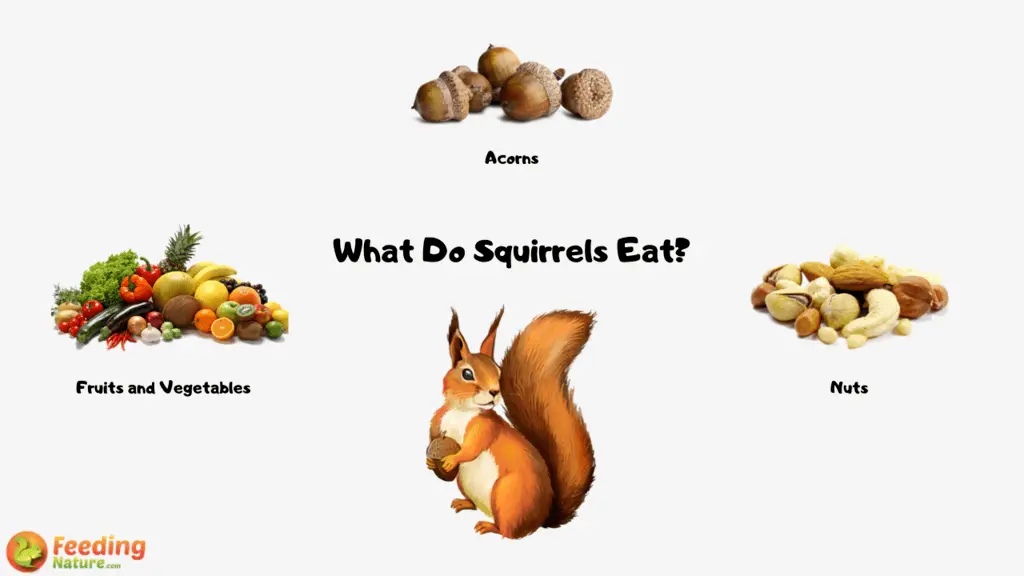 It contains many of the foods that we know hamsters can eat. Therefore, as long as it doesn’t contain any additives, your hamster should really enjoy eating it. My hamster has not tried it as we don’t have babies. You should give a small amount to your hamster at first to see if they like it.
It contains many of the foods that we know hamsters can eat. Therefore, as long as it doesn’t contain any additives, your hamster should really enjoy eating it. My hamster has not tried it as we don’t have babies. You should give a small amount to your hamster at first to see if they like it.
How to feed your hamster baby food.
When you are giving treats, such as baby food, to your hamster, always make sure you are holding them or make sure that you are close to them. This is because giving treats to your hamster can strengthen your bond and assist in socializing them. Only give a small amount to your hamster at first, this is to figure out if they like this. There’s no point giving your hamster a lot of it if they just ignore it! Your hamster might put the food in their cheek poaches though.
Ensure that the baby food is free from high amounts of sugars and preservatives before giving it to your furry friend.
Consider feeding baby food to your hamster as part of a diet including treats like pumpkin seeds, cabbage, and carrots! These kinds of things are great for your pet, as long as you make sure that you feed them in the correct amounts.
An example of the kind of baby food that your hamster can eat! Click to check it out.How much baby food can hamsters eat?
So, we know that hamsters can eat baby food, but how much can they eat? This is vital as too much food can cause problems for your hamster, no matter what it is. Your hamster’s breed affects how much they can eat. Syrians can eat the most baby food, robos can eat less, and dwarfs should only eat a small amount. This is due to the strength of their respective digestive systems. Feed your breed below and find out how much baby food they should eat.
How much baby food can syrian hamsters eat?
Syrians can eat the most baby food, this is due to the strength of their digestive system.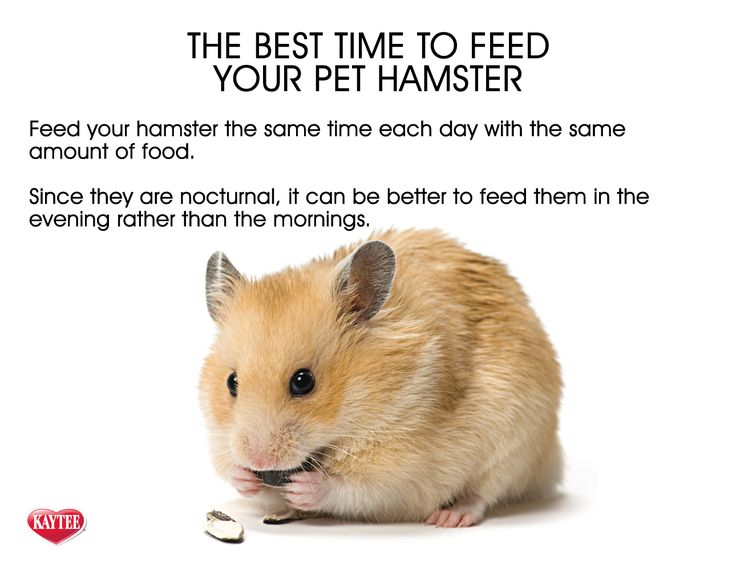 You should feed them around a teaspoon of baby food every week as a treat, This should be alongside the other snacks that you will be feeding your furry friend. As already stated, ensure that the baby food doesn’t contain meat or any other foods that your hamster should not eat.
You should feed them around a teaspoon of baby food every week as a treat, This should be alongside the other snacks that you will be feeding your furry friend. As already stated, ensure that the baby food doesn’t contain meat or any other foods that your hamster should not eat.
How much baby food can robo hamsters eat?
Robos are much smaller than syrians; this means that you should only feed them a small amount of baby food. Give them around half a teaspoon every week as a treat. Again, this should be alongside the other treats that you give them. You should not just feed baby food as a treat as your hamster requires a variety of snacks.
How much baby food can dwarf hamsters eat?
Dwarf hamsters, including Chinese, Campbell, and Russian hamsters, are smaller than the average hamster, which means that they can’t eat a lot of the food that we humans can eat! Feed them half a teaspoon of baby food every other week.
Benefits of baby food.
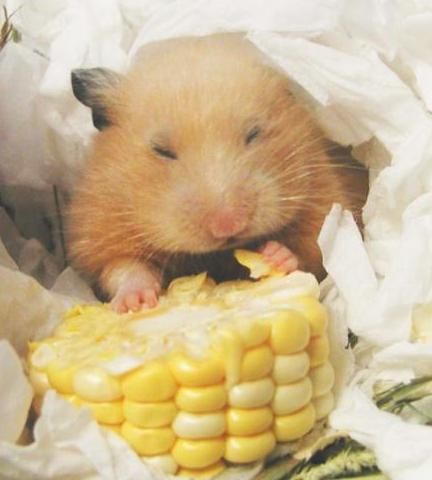
Baby food has plenty of benefits for babies, this is why we give it to them. The great news is that these benefits apply to our furry friends as well! You still need to ensure that the food is fed correctly though. If you ensure that the baby food is fed correctly, these are some of the benefits:
- Vitamin C – This offers fantastic benefits for your hamster’s overall health.
- Vitamin K – This helps your hamster’s wounds to heal.
- Iron – This has great benefits for your hamster’s blood.
- Calcium – This benefits your hamster’s teeth and bones.
- Magnesium – This helps with your hamster’s blood pressure.
Risks of baby food.
Whilst we have made it clear that your hamster can eat baby food, and that they will get a lot of benefits from it, you still need to ensure that your furry friend is fed it correctly. Too much baby food could cause problems for your hamster, just like any other food in excess.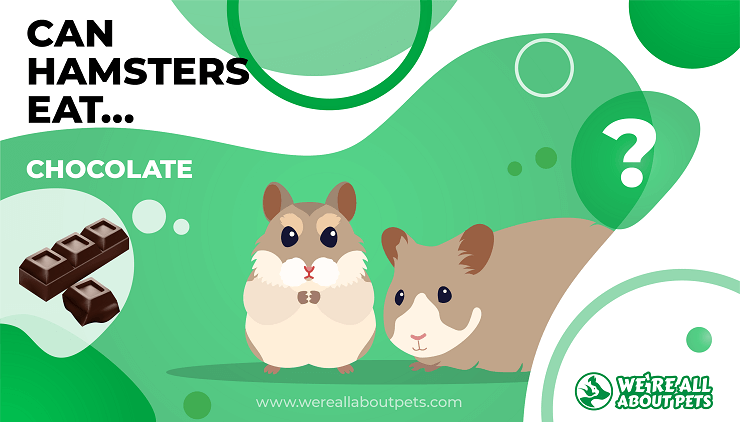 Some of the risks of not feeding baby food correctly:
Some of the risks of not feeding baby food correctly:
- Nutritional Issues – Just feeding baby food will cause nutritional problems for your hamster.
- Poisoning – Baby food with improper foods in it (like meat) could cause problems for your hamster.
- Rotting Food – Baby food, especially ones without preservatives, may rot quickly. This could be a problem if your hamster stores it.
- Teeth problems – Your hamster needs crunchy food so that its teeth are worn down. You should keep soft foods limited.
What else can hamsters eat?
Other than baby food, your hamster can eat so many different foods. We recommend nuts, seeds, and vegetables as the primary snacks for your hamster. You should feed these as an occasional treat for your hamster alongside their primary hamster food. Some snacks that you can feed your hamster include:
- Cashews – A great snack for your hamster.
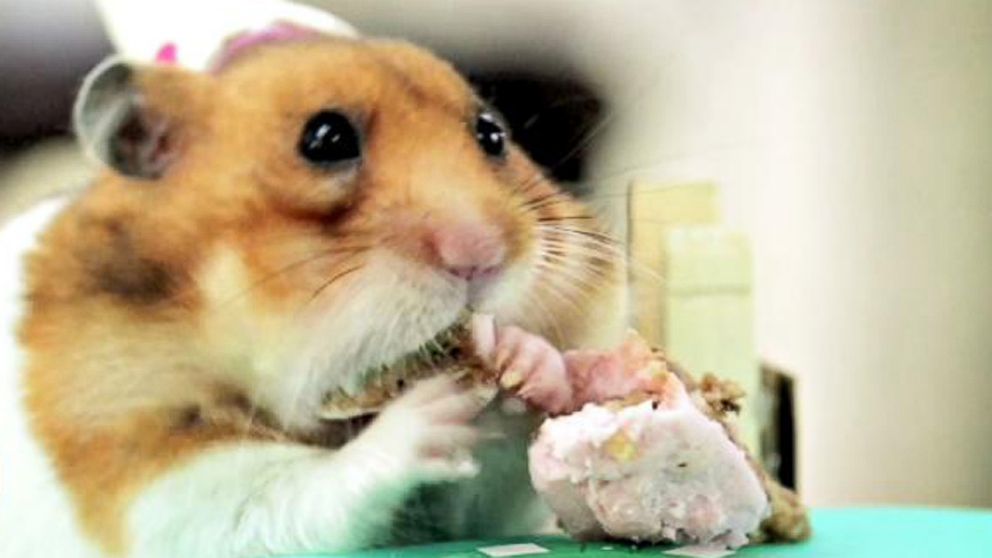
- Peas – A delicious green snack for your pet.
- Broccoli – A fantastic green veggie.
- Sesame Seeds – Delicious!
You should ensure that your hamster’s primary meal source is their usual hamster food though. This provides your hamster their essential nutrients and ensures that their are healthy. We recommend the Supreme Tiny Friends Farm Harry Hamster Mix as this provides a delicious nutritional balance for your pet. You can buy that below!
Buy it here!Conclusion – Can Hamsters Eat Baby Food?
In conclusion, hamsters can absolutely eat baby food. However, you should ensure that they are fed the correct baby foods. The correct baby food needs to contain substances that your hamster can eat, and it must not have the ones that they cannot eat. The correct baby food can have plenty of benefits for your hamster. Give your hamster a small amount of appropriate baby food, and see if they like it!
Have you fed baby food to your hamster, did they like it? Let us know in the comments!
Related Articles:
- Can Hamsters Eat Mealworms?
- Can Hamsters Eat Oats?
- Can Hamsters Eat Hazelnuts?
Post Views: 21,624
Can Hamsters Eat Baby Food? -
Last updated on January 22nd, 2023 at 07:11 pm
We can feed hamsters with various food, but what about baby food? Can hamsters eat baby food? Is it good for them too?
Yes, hamsters can eat baby food in moderate amounts to get the best benefits without side effects.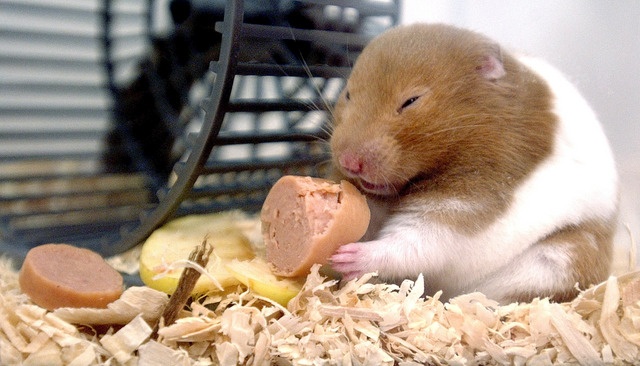 By eating baby food, hamsters will get vitamins and minerals good for their health.
By eating baby food, hamsters will get vitamins and minerals good for their health.
In today’s article, we will find out how much baby food hamsters can eat and the benefits and risks that may occur.
What is baby food?
Baby food is healthy and soft food that is made especially for babies to eat.
Babies don’t have teeth, so baby food is soft and contains excellent nutrients for babies’ development and hamsters.
Baby food is often made with pears, carrots, and other healthy foods that fit well into the hamster’s menu.
There is a large selection of baby food with different compositions, so you must choose what baby food you will give the hamsters.
Can hamsters eat baby food?
Yes, hamsters can eat baby food safely and use its benefits in the best possible way.
Hamsters can eat baby food, consume protein and fat to improve health, and have the energy to play and run.
For hamsters to eat baby food, we need to pay attention to the amount that we give them; it should always be in certain amounts so that there are no side effects.
At the same time, we should ensure that the baby food does not contain salt, preservatives, and as little sugar as possible because these three ingredients are dangerous for hamsters’ health if taken in large quantities.
Will hamsters like to eat baby food?
Yes, hamsters or most will want to eat baby food because they will like the taste.
It may happen that one of the hamsters refuses to eat baby food, but this is completely normal, and we should not force him if he does not want to eat this kind of food.
But that shouldn’t disappoint you; there is a large selection of other food that your hamster will love to eat and that provide excellent nutrients.
How to start giving baby food to hamsters?
Whenever you start giving them baby food or any other food, you, as the owner, should give them a try.
Hamsters are by nature very timid animals, so if you give them baby food, they will more easily dare to try eating, and at the same time, you will strengthen mutual trust with your pet.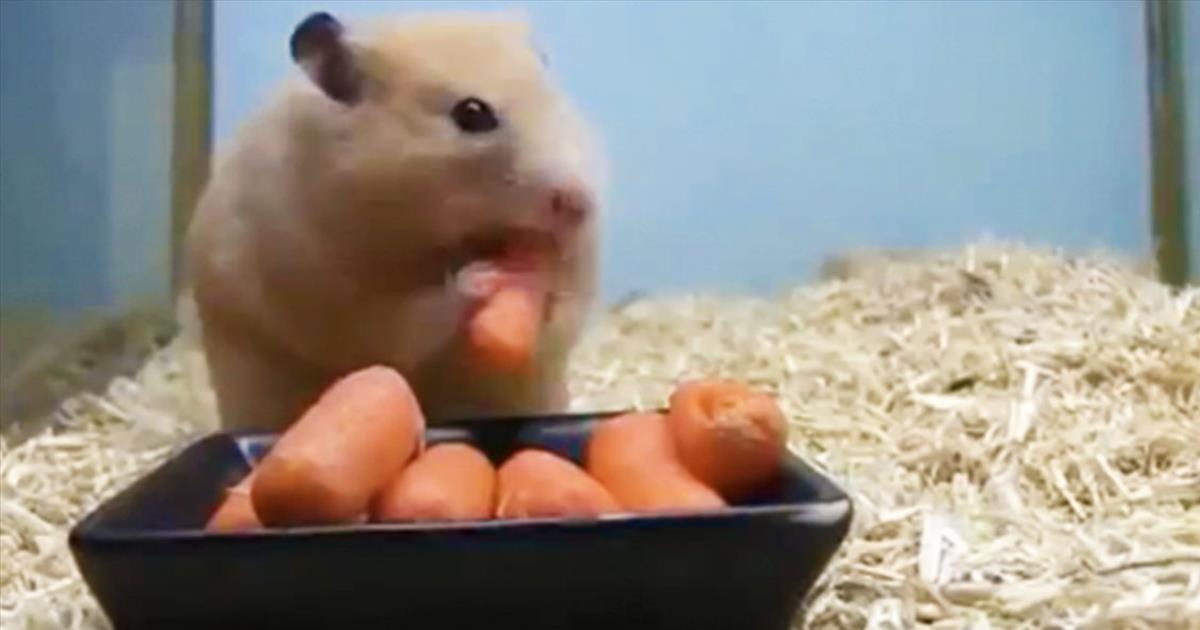
Give him a very small amount to see what his reaction will be if he likes it or not.
If he likes them, give him more of the baby food next time, and if he refuses to eat, try again in a few days; if he doesn’t like it even then, don’t give him baby food, he doesn’t need to eat something he doesn’t like.
How much baby food can hamsters eat?
The question of how much baby food hamsters can eat depends on their breed.
Syrian hamsters, being the largest, can eat the most, and dwarf hamsters have the least amount of baby food.
Different breeds of hamsters have different digestive systems, and therefore there is a difference in the amount they are allowed.
So let’s see, depending on the breed, how much baby food hamsters can eat.
How much baby food can Syrian hamsters eat?
Syrian hamsters are the largest breed and can eat a teaspoon of baby food per week.
Syrian hamsters have the strongest digestive system and can eat the largest amount of baby food or any other food.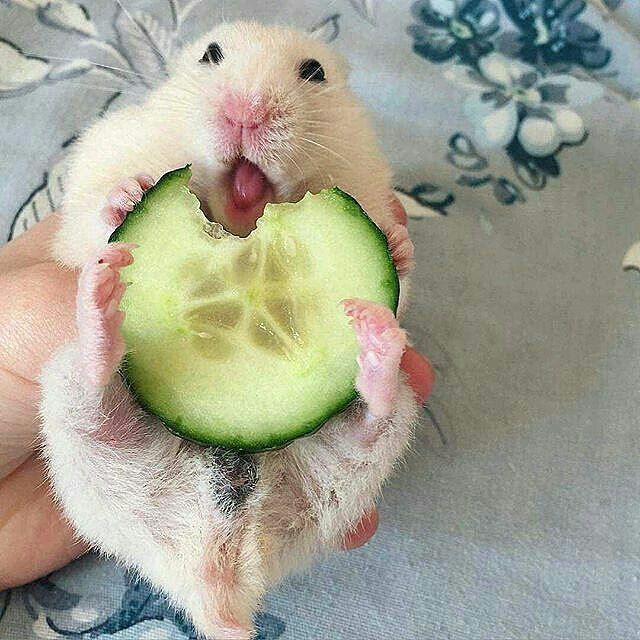
With this amount of baby food, Syrian hamsters will enjoy the benefits without having any side effects on their health.
How much baby food can Robo hamsters eat?
Robo hamsters are smaller than Syrian hamsters so they can eat half a teaspoon of baby food per week.
Robo hamsters have a weaker digestive system than Syrian hamsters; therefore, this amount is sufficient for them to have health benefits.
It may seem like a small amount, but be sure that even with this amount, the Robo-hamsters will be satisfied with better health.
How much can baby food dwarf hamsters eat?
Dwarf hamsters, which include Russian, Chinese, and Campbell’s hamsters, cannot eat large amounts of baby food due to their size.
They have the weakest digestive system of all the hamster breeds and, therefore can only eat 1/4 teaspoon of baby food per week.
But even this amount will allow them to have an intake of vitamins and minerals to improve their health.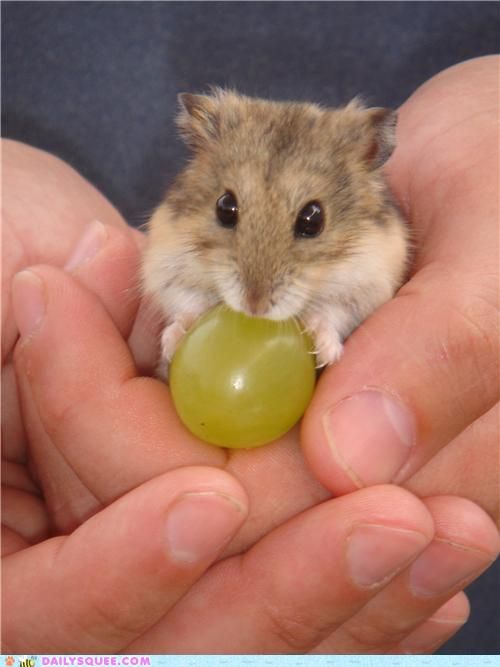
Benefits of baby food for hamsters
As long as we give the hamsters a moderate amount of baby food, they will have health benefits.
Here are some of them:
- Vitamin C – is the most important vitamin for hamsters, since they do not produce it themselves, so they have to get it regularly through their diet; this vitamin protects against the very dangerous disease scurvy, as well as better immunity against colds and diseases.
- Vitamin K – is an excellent vitamin that helps to heal wounds in hamsters easier and faster.
- Calcium – is a mineral that is excellent for hamsters’ proper growth and development of bones and teeth.
- Magnesium – regulates blood pressure in our furry friends.
- Iron – prevents anemia and improves blood in hamsters.
Side effects of baby food for hamsters
If hamsters eat baby food more than they should, then side effects and health problems will occur.
Here are some of them:
- Dental problems – hamsters need to eat crunchy and harder food to wear down their teeth, and baby food is unfortunately soft and, in this relation, does not suit our pets.
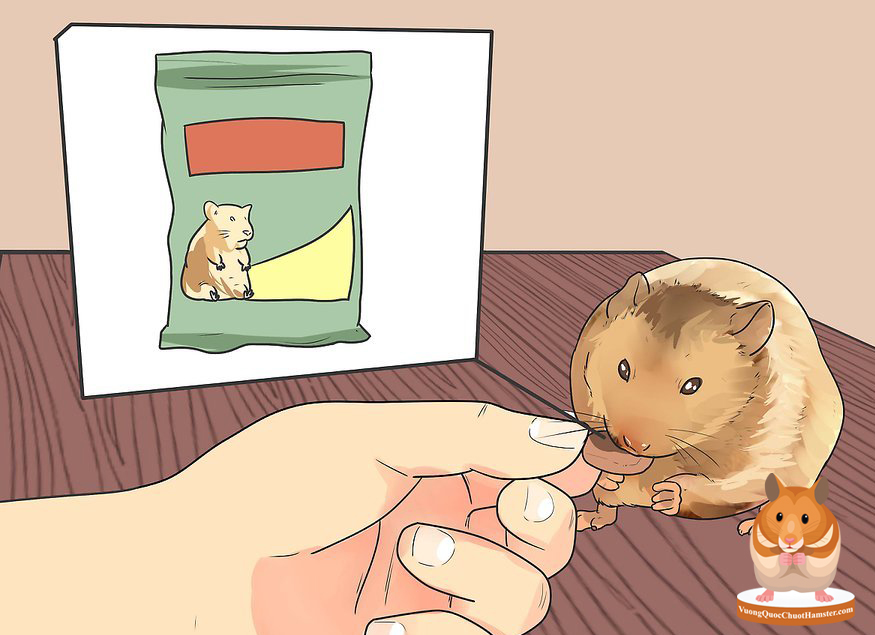
- Spoiling of food – when hamsters eat baby food without preservatives, it spoils quickly; therefore, we must be careful; spoiled food is harmful and dangerous.
- Diarrhea – too much baby food can cause diarrhea, so be careful with the amount; diarrhea is dangerous for the health of hamsters.
- Poisoning – since baby food cannot be stored long, if the hamsters eat spoiled baby food, poisoning will occur.
What to do if hamsters eat too much baby food?
If hamsters eat too much baby food, nothing terrible will happen to them, but the following symptoms may appear:
- bloating
- pain in stomach
- diarrhea
- loss of appetite
In a situation where the hamsters will eat too much baby food, it is best to give them a larger amount of water, so that it can be digested more easily in their digestive system.
If the listed symptoms do not go away in two days, take your hamster to the vet for an examination.
Can Hamsters Eat Baby Crackers?
Yes, hamsters can eat baby crackers quite safely, but always in limited quantities, never as regular food.
Baby crackers are good for the health of hamsters, and just as they are good for babies, it is a type of baby food.
Can Hamsters Eat Baby Food Puffs?
Yes, hamsters can freely eat baby puffs as long as the dose given to them is taken care of so that they don’t have side effects on their health.
Hamsters will like baby puffs; their size is perfect, so they can eat them without choking.
According to many, baby puffs are an excellent and healthy hamster snack.
Can Hamsters Eat Carrot Baby Food?
Yes, hamsters can eat carrot baby food.
Hamsters will enjoy carrot baby food and use the nutrients for their health.
Carrots contain vitamins and minerals that your furry friend needs; just be careful about the amount you give them.
read more: Can Hamsters Eat Apricot? All You Need To Know
Can hamsters eat baby food with pears?
Yes, hamsters can freely and safely enjoy pears’ baby food.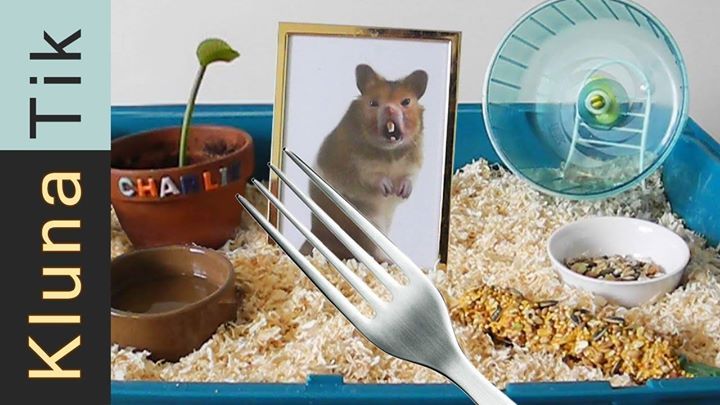
Nutrient substances from pears are always welcome for the health of hamsters, so you should not hesitate; you can freely give them to enjoy this dessert.
Always pay attention to the deadline and immediately remove the remains when they eat the baby food with pears. Otherwise, they attract insects and flies, and the baby food is easily perishable.
read more: Can Hamsters Eat Pretzels?
Conclusion
Hamsters can eat baby food, but always in moderation, to get the best possible benefits.
If they eat moderately, they will have healthier bones, a healthier heart, good blood pressure, and other benefits.
If they eat too much baby food, there are dangers such as poisoning, problems with teeth wear and similar problems.
Depending on the breed of hamsters, half to one teaspoon per week is enough to get nutrients, minerals and vitamins.
Finally, hamsters can enjoy dessert with baby food, and we must pay attention to the quantity.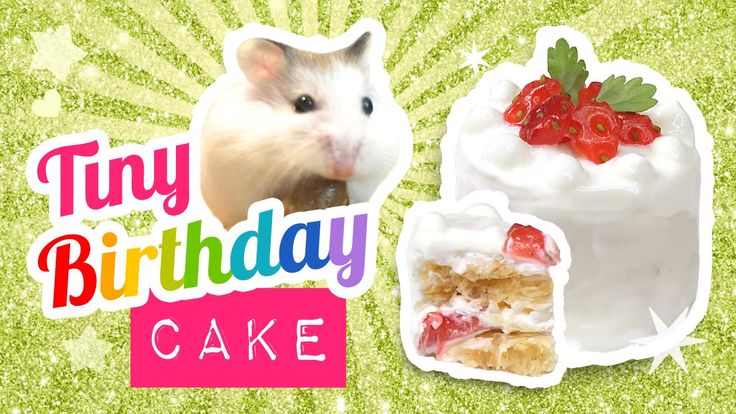 Of course, it must be without preservatives and other additives that are dangerous for the health of our furry friends.
Of course, it must be without preservatives and other additives that are dangerous for the health of our furry friends.
read more: Can Hamsters Eat Cashews? (Benefits And Risks)
How to feed a hamster - Reserve
Peculiarities of feeding a hamster: what can and cannot be given to a pet
Hamsters, like any other pets, need the most varied diet. However, this does not mean that a small rodent can be fed to everyone. The health and longevity of the animal depends on how properly selected and healthy the food of the animal will be. In order for the pet’s table to be complete, you need to know which foods are allowed to be included in its diet, and which are prohibited.
Basic and additional components of the hamster diet
The basis of the diet of indoor hamsters is dry grain food and succulent food. The main component is grain: wheat, oats, corn and other cereals, which are presented in the optimal ratio in "store" mixtures for hamsters. Ready-made feeds consisting of grains, granules, flakes, as a rule, are very nutritious and balanced in terms of the amount of vitamins and other important substances. Give them to the animals daily.
Ready-made feeds consisting of grains, granules, flakes, as a rule, are very nutritious and balanced in terms of the amount of vitamins and other important substances. Give them to the animals daily.
A hamster's diet must contain juicy food: vegetables, fruits, berries, herbs. From vegetable crops, this rodent can be given carrots, beets, pumpkins, turnips, including boiled ones, zucchini, cucumbers, tomatoes, bell peppers, radishes. From fruits - apples, pears, apricots and peaches, and from berries - grapes, currants, strawberries, raspberries, blueberries, cherry pulp. Fresh vegetation is very useful for hamsters: lettuce, dandelion leaves, plantain and clover, dill, parsley, beet leaves. In winter, greens for hamsters will replace hay, oat or wheat sprouts.
Occasionally offer your pet nuts (any but Brazil nuts and almonds), seeds (sunflower, pumpkin, melon, watermelon), legumes (dried beans and peas). Nuts and seeds are usually included in ready-made feed mixtures, so these treats should be served to the hamster in small quantities.

Hamsters eat dried fruits with great pleasure, they can be treated with various dried fruits, except for prunes: raisins, dried apricots, apples, pears, banana chips.
As a protein supplement, approximately two to three times a week, give your pet foods from the following list, alternating between them: low-fat kefir, cottage cheese or yogurt without sugar and flavorings, boiled chicken meat without salt and spices, boiled chicken or quail egg flour or earthworms purchased at a pet store, dried gammarus and dried insects.
In the diet of sick, debilitated and elderly animals, as well as young animals, cereals on the water, baby food: dairy-free cereals, vegetable and meat purees without salt, sugar, gluten and starch should be introduced. In addition, aged hamsters are given ground grains and nuts, mashed vegetables.
In a rodent’s cage for grinding teeth, there must be a mineral stone or branches of deciduous and fruit trees that grow best outside the city: birch, poplar, hazel, beech, maple, apple, pear, cherry and others.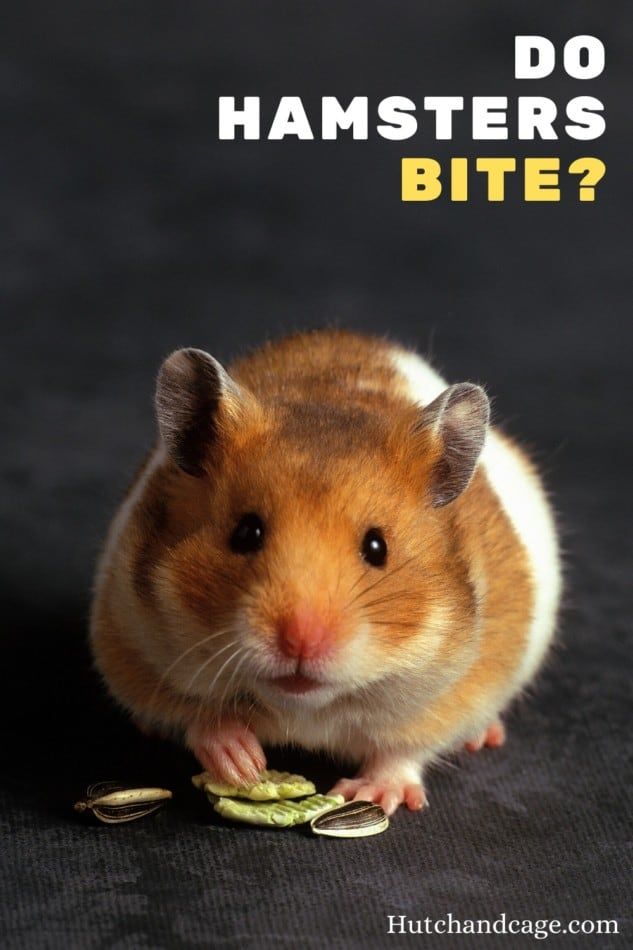 The branches, before giving the animal, should be boiled for an hour and a half and dried. You can also find ready-made twig sets at pet stores.
The branches, before giving the animal, should be boiled for an hour and a half and dried. You can also find ready-made twig sets at pet stores.
Do not abuse special treats for hamsters in the form of cereal sticks and bars, crackers, biscuits, drops. Occasionally, a pet can be pampered with simple drying or home-cooked popcorn without salt, sugar and other additives.
What not to feed a hamster Food from our table is absolutely not suitable for hamsters! The body of these animals does not tolerate sweet, salty, fatty, fried foods, as well as canned and smoked foods, spices. Do not offer your hamster expired grain mixtures, as well as food created for other rodents and ornamental birds!
The list of prohibited products includes potatoes, including peel and eyes, cabbage, onion, garlic, sorrel, mint, milk and fatty dairy products (sour cream, cream, yogurt), butter, pasta, including dry, and also dry breakfasts and muesli. Cheese and bread cause great harm to hamster health: they cause severe constipation, which can lead to the death of the animal. Watermelon, citrus fruits, exotic fruits (kiwi, persimmon, pineapple, pomegranate, avocado and others), mushrooms, acorns, red beans, branches of coniferous trees, apricot pits, peaches, plums, cherries are contraindicated for hamsters. You can not pamper your pet with honey, goats and other sweets, fruit juices, sausages and sausages.
There is nothing critical if you once gave your hamster any of the above. A single use of junk food is unlikely to cause irreparable damage to the animal's body, the main thing is not to give the forbidden product again.
Feeding tips for hamsters
A hamster's diet depends on its age, lifestyle, habits, nutritional needs, and season.
When choosing ready-made food, pay attention to the ratio of its components, the amount of proteins and carbohydrates. It is better to refuse mixtures with a large volume of seeds or nuts: the animal will choose them, leaving more valuable ingredients intact. If your pet is overweight, reduce the amount of purchased food and increase the amount of fresh food.
Do not overfeed the animal! Remember that due to its natural habit of stocking food, the hamster will always hide some of the food he receives in his house. Taking into account another feature of this animal - to lead an active lifestyle at night - it is recommended to feed the hamster twice a day, giving him most of the daily diet in the evening. At the same time, it is better to offer juicy food in the morning, grains in the evening.
So the likelihood that the hamster will store perishable food will be less. The wet food remaining in the bowl is removed immediately after eating.
Containers for food and drink should be washed daily. It is believed that hamsters make up for the lack of fluid in the body by eating juicy food, however, there should always be clean water in the animal's drinking bowl and it must be changed every day.
What do hamsters eat. What can and cannot be fed to a hamster (lists and recommendations)
What a rodent eats in nature
The natural food of an animal depends on its habitat, and what hamsters eat also depends on it. They prefer to settle in the fields, so their main diet is cereals. If there is a village nearby, animals will definitely visit it. There they deal with stored vegetables and fruits. Fresh herbs are part of the diet. The hamster eats grass and field plants. Beetles, spiders and caterpillars are the favorite prey of rodents. The nature of animals is far from angelic, if they come across a wounded animal, the rodent will not disdain fresh meat.
What a hamster eats at home
The closer the diet is home to natural, the better for the animal. In the wild, no one cooks him fried potatoes and dumplings. Therefore, homemade fried, salty, smoked and sweet foods will very quickly destroy the baby.
Hamsters should not eat fatty, spicy or canned food.
The main part of the diet is cereals. Watch how hamsters eat and choose the right mixture. Special mixes can be purchased at the store. Vitamins are usually added to more expensive mixtures.
Animals and fruits willingly eat at home. This is important if there is no drinker in the cage. Fruits and vegetables are given to animals in finely chopped form or in large pieces so that teeth can be ground down.
Perishable food must be removed from the cage after 6-8 hours, so as not to poison the babies.
Do not give to animals:
- citrus fruits;
- potatoes;
- cabbage;
- exotic fruits;
- Brazil nuts.
Domestic hamsters are happy to eat boiled chicken breast, eggs and insects, low-fat cottage cheese, seeds and nuts. No need to stuff animals with meat 3 times a day. Such food should appear "on the table" 2-3 times a week.
The protein component must be present in the menu of pregnant and lactating females almost every day.
Earthworms are a very nutritious food, the hamster eats them with great appetite, but you cannot dig worms in the garden. Pets can become infected with something. There must be a mineral or chalk stone in the cage for grinding incisors.
Healthy diet for hamsters
In order for a hamster to live well at home, it is necessary to feed food close to nature. A rodent should not eat with salt, sugar, smoked meats, fried, fatty, canned food. Such food can greatly harm the animal, cause an ulcer, in special cases - leads to death.
- The main part of the diet of hamsters is grain products - buckwheat, oatmeal, millet, lentils. Rice is allowed to be given steamed for diarrhea in a hamster.
Pet stores sell pure grain mixtures, as well as with the addition of vitamins and minerals needed by the animal.
- Domestic hamsters most often love fruits.
Pears, apples, apricots, plums, bananas, watermelons and melons can be given. Unsweetened apples in the diet are especially important for pregnant hamsters, as the vitamins they contain support immunity, make bones and teeth stronger during such a crucial period. Apricots are best served unripe as they contain less sugar. Give watermelon and melon rarely, no more than once a week. Hamsters have a positive attitude towards berries - their favorite ones are grapes / raisins, cherries, raspberries and blueberries. Cherries must be given already without a stone.
- It is necessary to add chicken breast to the diet no more than twice a week, earthworms, always purchased, summer ones can transfer the infection.
For grinding incisors, it is proposed to install a mineral or chalk stone in the house.
Amount of water and food for a hamster
Since hamsters are nocturnal animals, appetite also wakes up at night and in the evening. The amount of food directly depends on the size of the rodent. For example, a Syrian hamster needs 1 tablespoon of grain mixture twice a day; Dzhungarian - 1 teaspoon in the morning and evening. In the evening, be sure to give the hamster fruits and vegetables, remove the leftovers so that they do not rot. It is also necessary to throw away the stocks that the hamster makes due to its natural nature.
A hamster, although not drinking large amounts of water, should not "die" of thirst. Place a water bowl or drinker in the cage. Do not forget to change the water, be sure to pour boiled water.
Homemade food
According to some breeders, their pets participate in joint family meals, eating the same as their owners. It's nice to watch a hamster "look closely" at a large plate, but it is desirable that it contains neither dumplings nor soup. And also detrimental to rodents sweet and fatty foods.
From homemade products, hamsters can be fed cereals boiled in water: oatmeal, buckwheat, millet, lentils. Without any fear, you can feed your pet with low-fat cottage cheese, boiled eggs and boiled chicken breast.
Sometimes owners want to pamper a rodent with a cookie, but so that such food does not harm the pet's health, only biscuit cookies can be used. And even then, provided that it is unsweetened, unsalted and low-fat. If you really want to see how the hamster will hold the proposed food in its paws, it is better to give it a whole grain dietary bread without aromatic additives.
Vitamin storehouse
Hamsters readily eat vegetables and fruits. And if in the selection of a vegetable diet it is necessary to exclude potatoes, cabbage, onions, garlic and zucchini, then when choosing fruits to replenish the supply of vitamins in the “fluffy” body, you must adhere to some rules: ;
In addition, the diet of Djungarian hamsters is somewhat different from how the "Syrians" eat. Dwarf species are more prone to diabetes, so they should prepare a fruit dessert less often than Syrian rodents.
The diet of the Dzungarians is slightly different from the diet of the Syrians. Dzungarians are prone to diabetes, so they can get fruits much less often than the Syrians.
List of unhealthy foods
In order for your pet to grow up active and healthy, do not feed fried, smoked, sweet and salty foods. It is forbidden to give hamsters any canned food, except for mixtures for babies (meat, vegetable and fruit purees), which do not contain salt, sugar and other preservatives.
It is advisable to exclude cabbage leaves, potatoes, citrus fruits (oranges, tangerines) and other exotic fruits with stones from the diet of hamsters. It is forbidden to give almonds and Brazil nuts, black and white bread, beans, dry pasta.
There is an opinion that hamsters really like cheese and that all rodents like to eat this product in plenty. In fact, such food contains a lot of salt, spices and heat, which can adversely affect the health of a pet. If you really want to pamper your hamster with such food, then the portion should be no larger than the size of a seed and be in the rodent's feeder no more than once a week.
The menu of a pet should not contain sausages, sausages, sour cream, mushrooms. There should be no coniferous branches in the hamster's cage.
Hamsters love to eat earthworms, eating them with great appetite, but it is undesirable to dig them in the garden, because pets after eating such food can become infected with some kind of infection.
Feeding rules at home
In the wild, the daily menu of hamsters is determined by the habitat. In order for the pet not to feel a shortage of the necessary food in captivity, you need to correctly think over the diet and maintain a balanced level of macro- and microelements in the animal's body.
Mode
Veterinarians recommend feeding your hamster 2 times a day - in the morning and in the evening. It is better to give fresh food first so that the rodent does not start hiding it in the pantry. The bulk of the food is served in the evening. Hamsters are crepuscular rodents that prefer a nocturnal lifestyle.
In order for the pet not to overeat and not feel a shortage of food, you need to adhere to the established feeding regimen.
Quantity
Depending on age and size, pets require different amounts of food. The hamster consumes a lot of food, and the daily norm is 80-100% of body weight. Appetite is determined by breed characteristics, microclimate and individual preferences of the individual.
The hamster considers food not only as part of the daily menu, but also as a strategic supply. Therefore, uneaten food is deposited by the rodent in case of starvation. This leads to the appearance of an unpleasant odor and the development of pathogens in spoiled products. To prevent such troubles, you should clean up the remnants in time. Instead, you can put a few seeds in the pet's storage.
Types of feeding for hamsters
There are two main ways of feeding rodents:
- combined - usually used in summer. For this type, it is necessary to take care of the presence of several feeders in advance: one contains a grain mixture, the other contains fresh greens, and the third contains soft food. This type of feeding is not suitable for busy people: it takes a lot of time to prepare the feeding for the day. You will often have to disinfect the feeders to avoid infection with an intestinal infection;
- dry - more convenient in the cold season, here the diet is the most balanced, suitable for nutrition according to the norms.
Refusal of food for more than a day requires the introduction of artificial feeding. Feeding is ground, mixed with water until sour cream is thick, injected into a sterile syringe without a needle, squeezed out gently, making sure that the pet does not choke.
How to choose the right food
Veterinarians are unanimous in their opinion that the basis of the daily menu should be ready-made dry food. Its composition is carefully thought out and balanced with respect to needs, the manufacturer fills the packages with quality ingredients. With an abundance of choice, it is difficult to decide, so before buying, you should focus on some criteria:
- feed must be clean. The more stages of cleaning passed at the factory, the better the product. In addition, it will not create an unpleasant dusty cloud when poured into a bowl;
- variety of ingredients. At the same time, an abundance of nuts and starchy components should not be allowed;
- BJU ratio. Proteins make up 14%, fats 7%, and carbohydrates the remaining 79-80%;
- free of dyes, flavors and other additives;
- sealed package. It is better to give preference to packages with a Zip Lock.
Choose food for hamsters, mixtures for parrots, hares and other animals will not work.
![]()
Another selection criterion: cereal or mixed feed. In the first case, only cereals are included in the composition, the owner needs to supplement the diet with fruit and vegetable or vegetable components. Combined is much more convenient, it includes everything you need for a pet.
Variety of treats
Grocery stores sell a variety of treats for hamsters. But before buying such feeds, you should make sure that there are no salt, sugar, flavor enhancers and flavorings in their composition. Such additives are slow poison for rodents. Therefore, it is better to give preference to the following food:
- Nuts.
- Banana chips.
- Dried fruits and dried vegetables.
- Sunflower seeds.
Sunflower seeds are a treat for your pet hamster.
Table food
Veterinarians advise against feeding your hamster table food. Therefore, it is better to limit yourself to those products that are on the allowed list.
Is it possible to give exotic fruits to a hamster
Fruits are regularly fed to hamsters at home. They should be sweet, not sour. As for imported exotics, animals do not need them. Fruits such as: kiwi, papaya, pineapple, mango will not bring any benefit to steppe animals. Not to mention something more exotic. The only fruit that has come into common use is a banana, they can be fed without fear.
Can hamsters eat parsley and dill
A hamster's diet is very varied. But this little organism is not designed for certain foods. From some it swells, others can block breathing, others can even lead to death. That is why, if you do not know what is possible and impossible for these rodents. Before feeding AI foods, find out if hamsters can parsley and dill (in this case).
Hamsters can parsley
To replenish vitamins in the body of an animal, you need to give him greens. And parsley belongs to this greenery. It contains a lot of vitamins A and C, as well as essential oils, which have a positive effect on the digestive organs. Moreover, there are special green food for rodents. They contain many nutrients and are designed specifically for hamsters. At the same time, they contain dill and parsley in their composition.
By the way, if you ask if hamsters can have walnuts, then we will find out that they often tame the animal.
It is very useful in such diseases as avitaminosis C. In this case, you need to take the baby to the veterinarian. Most likely, ascorbic acid and some powders are prescribed for this disease. But if you give your hamster greens, including dill and parsley, then the need for additional medicines disappears.
You can give hamsters parsley, but only high quality. If it grows near the road, then it is not suitable. Green food can only be given clean, as in principle, and any other. But only the one that grew 100 meters or further from the road.
Dill for hamsters
The answer to the question of whether hamsters can get dill follows from the fact that they need to be given greens from time to time. Especially in summer when it is fresh and nutritious. Crop, like parsley, also contains vitamins and will be useful for him. But not much, it acts on the hamster as a laxative.
Since many are still interested in whether a hamster can have a carrot, so - you can.
Conclusion: Can a hamster have parsley and dill? Of course you can. It is a useful food for rodents and should be given in the summer. But in moderation, the main diet of this animal is solid food. Green food is given rather for variety and replenishment of the body with vitamins.
It is recommended to ask what cereals can be given to hamsters, because this is also very important.
What is fed to hamsters at home in special cases
Special cases are the time of illness or feeding small hamsters. For babies, boiled cereals on water or baby food in jars without sugar, milk and gluten are suitable.
In case of illness, the owner of the animal should contact the veterinarian, but one-time disorders can be corrected:
- If the animal has diarrhea, you can give the hamster rice water or slightly undercooked rice.
- If he is constipated, give him 2 drops of vaseline oil every 3 hours. Here oil is not so much food as medicine.
An elderly hamster eats worse. It is more difficult for him to cope with large pieces of food and hard food. You can grate vegetables and fruits and steam cereals. However, solid food must be added, the animal cannot do without it. A decoction of chamomile, brewed twice a day, is also good to give to “pensioners”.
Caring for rodents is easy, but you need to know what hamsters eat. To do this, study the question of what hamsters are fed and what they cannot be fed on this depends on the health of the animal and its mood.
Features of feeding a pregnant or lactating woman
During pregnancy and lactation, the female needs additional nutrition, on average 10 hamsters are born. It takes a lot of strength and energy to feed them, so the usual portion is increased by 1. 5 times. There is also an urgent need for protein, which plays a significant role in active growth and development. 2-3 times a week they cook boiled chicken meat or egg yolk, lean fish, which are given alternately. Fat-free natural cottage cheese is given less often than other products, but it cannot be completely excluded - it is necessary for the formation of the skeleton of the fetus. For convenience, you can select special days, for example: Tuesday, Thursday and Saturday.
Juice products are given daily, with carrots, zucchini and pumpkin being preferred. It is better to refuse apples during pregnancy and lactation, as they can cause fermentation in the intestines. For the active production of milk, you need to drink plenty of fluids.
How to feed a small hamster
If the pregnancy proceeded smoothly, then it is highly likely that in the first weeks the female will feed her children on her own, and then she will grind dry food and accustom her to adult food.
Under no circumstances should the owner touch them. Having smelled someone else's smell, she can refuse them, not recognize them as her own, and eat them. If the female does not strive to feed the hamsters with milk, then they are taken to a separate warm mink, and for feeding, you can buy a specialized milk formula for kittens at a pet store. Feeding is done with a pipette or with a paint brush dipped in milk.
Upon reaching 2 weeks of age, children's milk-free oatmeal or buckwheat porridge, low-fat cottage cheese, an egg are introduced into complementary foods. It is also acceptable to give baby meat puree, namely turkey or chicken. At 3 weeks, an adult grain mixture is introduced, having previously rubbed it. At 6 weeks, nutrition becomes like that of an adult.
Feeding tips for hamsters
A hamster's diet depends on its age, lifestyle, habits, nutritional needs, and season.
When choosing ready-made food, pay attention to the ratio of its components, the amount of proteins and carbohydrates. It is better to refuse mixtures with a large volume of seeds or nuts: the animal will choose them, leaving more valuable ingredients intact. If your pet is overweight, reduce the amount of purchased food and increase the amount of fresh food.
Do not overfeed the animal! Remember that due to its natural habit of stocking food, the hamster will always hide some of the food he receives in his house. Taking into account another feature of this animal - to lead an active lifestyle at night - it is recommended to feed the hamster twice a day, giving him most of the daily diet in the evening. At the same time, it is better to offer juicy food in the morning, grains in the evening.
So the likelihood that the hamster will store perishable food will be less. The wet food remaining in the bowl is removed immediately after eating.
Containers for food and drink should be washed daily. It is believed that hamsters make up for the lack of fluid in the body by eating juicy food, however, there should always be clean water in the animal's drinking bowl and it must be changed every day.



